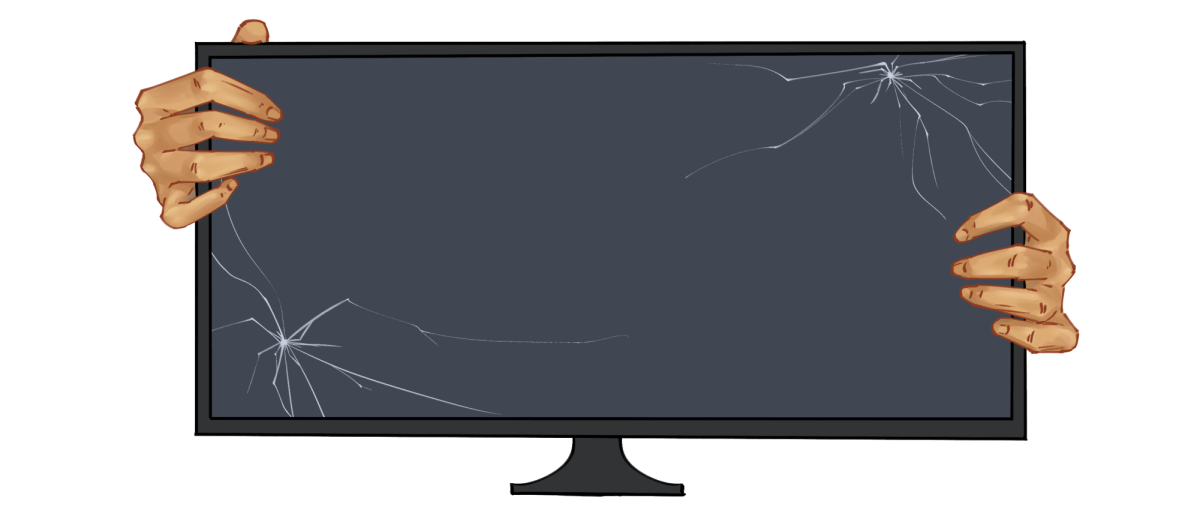Sports are deeply ingrained in society as forms of entertainment, socialization, unity and pride. The Super Bowl, the World Cup and the NBA finals bring millions of fans together to experience the drama and spectacle of peak athleticism. Despite positive benefits and traditions — beloved stadium tacos, Super Bowl Sundays and foam fingers — these games also sport an extremely dangerous side. As overzealous fans spiral out of control, destructive incidents ensue: The Boston Red Sox fans overturned a car following their 2013 World Series win, Kentucky Wildcats basketball fans set fires to couches and trash cans after a tournament loss, and, most recently, the Kansas City Chiefs’ parade saw a mass shooting after its 2024 Super Bowl victory. But this destruction surrounding major sporting events extends beyond the public sphere: Major sporting events are correlated with rising rates of domestic violence.
According to the Centers for Disease Control and Prevention, one in three women and one in four men report experiencing severe physical violence from an intimate partner in their lifetime. While most identifiable causes stem from drastic changes in life circumstances and generational abuse, empirical evidence points to other factors that can increase the likelihood of a dangerous home environment — including sporting events.
One report of such violence took place during the 2023 Tubi Super Bowl commercial. The advertisement begins with the game commentators giving a play-by-play of the field, seemingly marking the end of the commercial break. Then suddenly, a menu bar rises up on the screen, and an option is “clicked” as the screen jumps to the streaming service Tubi. Afterwards, on Reddit, a woman shared that her boyfriend became furious at her, believing she “clicked” on Tubi and caused him to miss a portion of the game. He then punched a hole in the drywall.
After the post garnered other women’s attention, many came forward with their experiences, including dozens of bartenders and waitresses who were yelled at and hurt by drunk patrons at their establishments. In fact, alcohol — according to Advanced Placement Psychology teacher Warren Collier — is the most significant situational force to be examined when considering a spike in domestic abuse on game days.
“Usually, people are drinking lots of alcohol, either at the games or at home watching it, and alcohol is going to make people make very dumb choices,” he said. “And that can lead to things like violence.”
Besides increasing the frequency and severity of the violence inflicted, alcohol harms victims in another way by masking violent behavior. Even though alcohol is a factor, it is never the underlying cause for violent urges, according to the Alcohol Rehab Guide. Many law-enforcement officers, perpetrators and even survivors, however, don’t see it that way. They diminish the crime by painting the narrative of an alcohol-fueled single-trigger accident. This misconception effectively sidelines victims’ experiences and absolves perpetrators of responsibility, concealing the disturbing pattern of violence and allowing it to continue.
Emotional “spillovers” also contribute to these incidents. According to Collier, immense emotional
arousal from one situation can “spill over” into other intense emotions after the fact.
“So let’s say I’m really excited that our team won, and I’ll stay happy about it,” he said. “But if my team loses, now I’m upset. And I have lots of physical arousal, like my heart is beating fast and I’m really excited. So now that excited feeling turns into anger and rage, and if I watch the game at home with friends or family, then unfortunately, the target of that rage might be other people.”
Indeed, wins and losses, when different from game predictions, determine the size of fluctuation in
domestic violence. According to a study from University of California economics professors David Card and Gordon Dahl, which drew on data from NFL games and the National Incident-Based Reporting System, “upset losses” — unexpected home-team losses — led to a 10% average increase in the number of police reports of at-home male-on-female intimate partner violence.
On the other hand, there was found to be no difference in violence when the home team lost after a prediction of a close game or when the home team had an unexpected win. This evidence serves as an important indicator in crime patterning because it suggests a crucial asymmetry in the reaction of unanticipated losses and gains – an unwelcome result of the volatile mix of alcohol, hegemonic masculinity and televised sports.
This pattern of domestic abuse, however, is not exclusive to NFL games. U.S. researchers at Lancaster University in England studied family violence rates during the 2002, 2006 and 2010 World Cups, discovering that domestic-violence reports rose by 38% when the English national soccer team lost and 26% even when they won. There was also a 11% rise the day after an England match, regardless of the outcome, suggesting the spillover effect.
Even though Palo Alto hasn’t charted a trend between major sporting events and domestic violence reports, according to Palo Alto Police Department Captain Zach Perron, domestic violence itself is still prevalent.
“Domestic violence, unfortunately, is not an uncommon crime in Palo Alto,” Perron wrote in an email. “It’s important to note, though, (that documented) reports and calls reflect only incidents when police are notified. Unfortunately, it is likely that a lot of domestic violence goes unreported to police.”
Moreover, fan behavior continues to be a local concern: In August 2023, two Bay Area high school games ended due to fan violence, and on Feb. 13, Gunn’s basketball senior night ended in an altercation between adult spectators.
Given the pervasiveness of family violence, resources have been designed for victims, such as domestic-violence shelters in Sunnyvale that allow up to a 30-day stay and 15-day extension for emergency shelters. Perron also urges victims to contact the police station or visit the PAPD website.
Ultimately, though, domestic abuse is not fundamentally inspired by external factors such as alcohol or the vehemently passionate environment of sporting events, but rather a need for a perpetrator to regain a sense of control over their partner. To give these situations the attention they deserve, there must be a continual willingness to support victims of this circumstance in order to end the normalization of family violence.






















